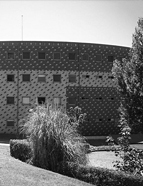

But in this dialectic of masters and disciples, several other cases are noteworthy for their uniqueness.
The first, above all, is that of Armindo de Sousa (1942-1988). With a long-standing interest in the issue of our late Middle Ages Courts, he considered developing his doctoral thesis around this theme from a very early stage. Inexplicably, he received only sceptical reactions from the School: from João Pedro Ribeiro and the Viscount of Santarém to Gama Barros and Marcello Caetano everything had been said and done... The providential (re)meeting with António Cruz - who he had assisted in Palaeography from 1979 to 1981, i.e., between his reintegration and retirement - brought him back to his chosen field, in which he would indeed earn his PhD in 1988 (with António Cruz as supervisor...; thesis published in 1990). But the singularities did not end there. His doctoral thesis would clearly substantiate a case of resistance to novelty on the part of significant sectors of the scientific community. Hence the author's subsequent resumption of several essential points of his work, in order to renew or reinforce the essence of his argument. Armindo de Sousa was also responsible for solid studies on power representations (e.g.., dynastic propaganda and chronicle discourse), as well as an initial approach to the agrarian history of the Santo Tirso monastery, a theme within the scope of which he supervised two master's theses. He was also responsible for the whole of part 2 (1325-1480) of Vol. 2 of the História de Portugal [History of Portugal] directed by J. Mattoso, and also collaborated in the História do Porto [History of Porto], directed by Luís de Oliveira Ramos, which will be referred to further ahead.
Another «sui generis» case is that of José Augusto de Sotto-Mayor Pizarro. In 1983, while preparing a master's thesis on the monastery of Pedroso, he discovered the relationship of the «natives» of the monastery of Grijó in the mid-14th century - the monastery where Luís Carlos Amaral was working at the time, as will be seen further ahead - which would lead him to explore this source from the point of view of the structure of the noble family (supervisor José Marques, informal support from J. Mattoso). In 1998 he defended a doctoral paper on the national lineages in Dionysian times (1279-1325), at this stage with J. Mattoso as the official supervisor. Having become one of the most acclaimed 13th century experts, the new century would witness him as Dom Dinis' biographer (in the afore-mentioned collection) and editor of the Inquirições [Inquisitions] of said monarch (published by the Academia das Ciências [Academy of Sciences]).
